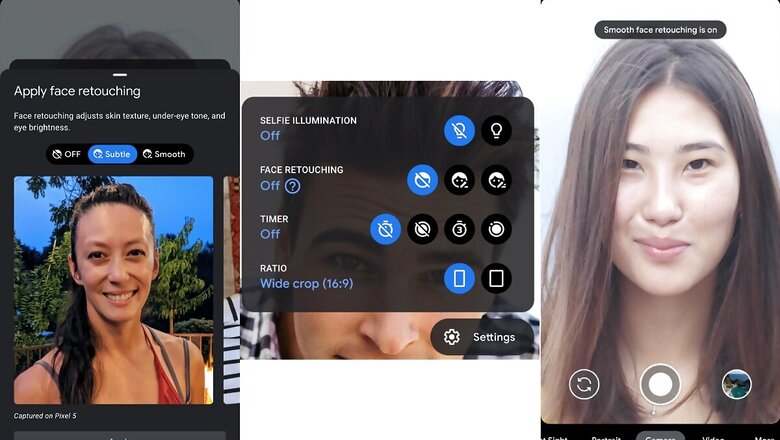Google Says Beauty Filters Are Bad For Your Mental Health & That Is Why Pixel Phones Won’t Have Them

views
Smartphones have been beautifying our selfies for a while now. After all, everyone wants to look good on social media. The Instagram uploads must be pristine. And if you have used a phone from one of the Chinese smartphone makers in particular, you just could not have missed all the beautification filters and tools available for your selfies and photos. Google, however, has a different take on it. It turns out, beautification of images can negatively impact mental wellbeing, particularly if you are looking at a photo and aren’t aware if a filter has been applied. The Pixel 4a, Pixel 4a with 5G and Pixel 5 phones will instead offer what the company calls retouching tools, which will be turned off by default, but when turned on, will adjust skin texture, under-eye tone and eye brightness.
“We set out to better understand the effect filtered selfies might have on people’s wellbeing—especially when filters are on by default. We conducted multiple studies and spoke with child and mental health experts from around the world, and found that when you’re not aware that a camera or photo app has applied a filter, the photos can negatively impact mental wellbeing. These default filters can quietly set a beauty standard that some people compare themselves against,” says Vinit Modi, Product Manager at Google.
In a separate documentation that details the connection between wellbeing and filters in selfies, Google believes that “Enhancement,” “beautification,” “touch up”, as the language of face retouching implies, means improving or correcting a person’s physical appearance with the suggestion that the way they actually look is bad. Pixel phones use the feature name “Face retouching,” and the tools are being further updated to reflect alterations.




















Comments
0 comment